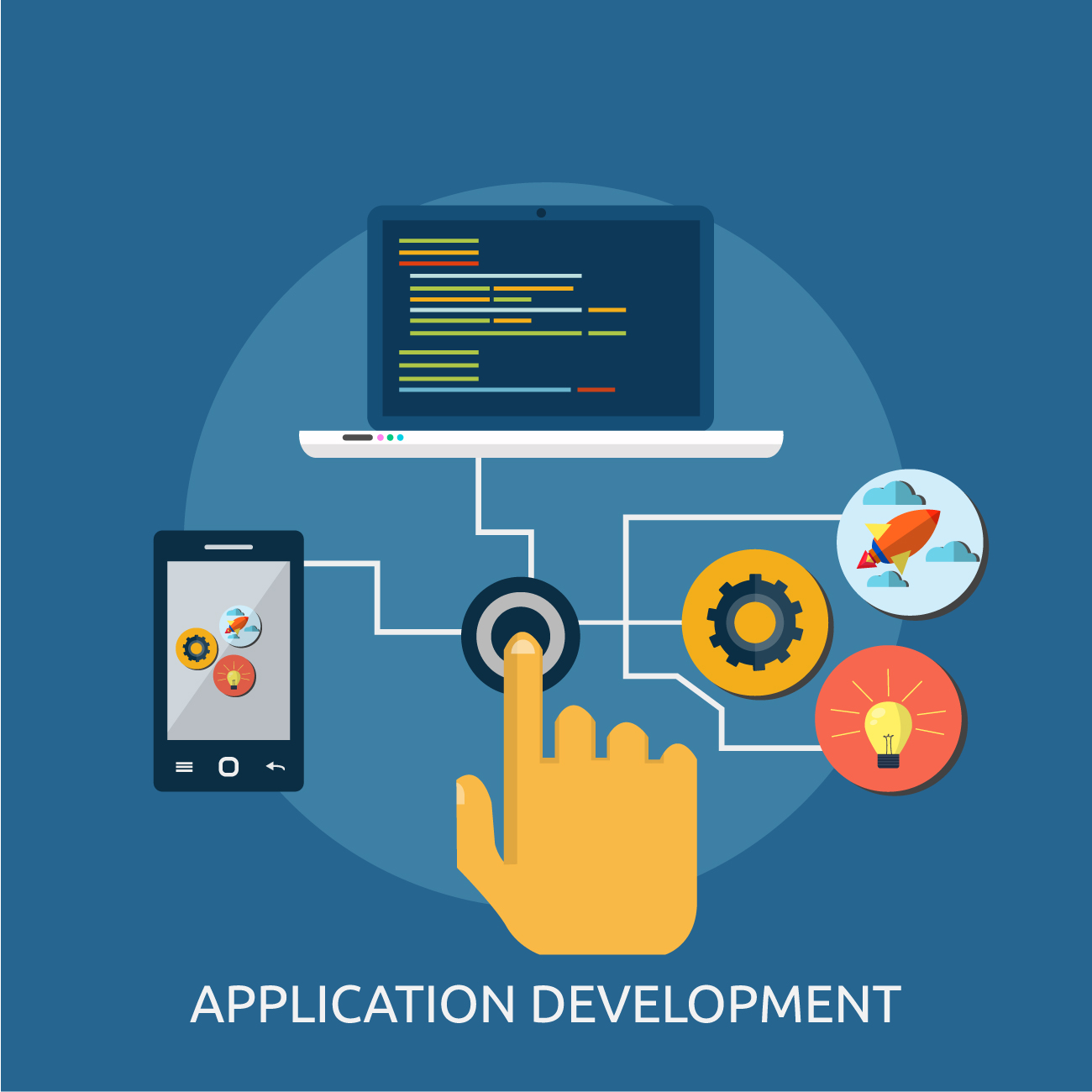Your project, your choice—discover the benefits of hybrid vs. native app development for success.”
#digitraly #applicationdevelopment #react #reactnative
In this article, we will explore the key differences between Hybrid vs. Native App Development, the pros and cons of each approach, and how to choose the right one based on your business needs. We will also discuss how Digitraly, a leading technology solutions provider, can help businesses navigate this decision with modern mobile app development services.
What is Native App Development?
Native App Development involves building applications specifically for a particular operating system, such as iOS (Swift/Objective-C) or Android (Kotlin/Java). These apps are designed to fully utilize the platform’s hardware and software capabilities, ensuring high performance, seamless user experience, and enhanced security.
Advantages of Native App Development
- Optimized for faster load times and responsiveness.
- Intuitive interfaces with seamless navigation.
- Efficient use of GPS, camera, and sensors.
- Follows platform security guidelines, reducing risks.
- Faster approval and higher visibility in stores.
Disadvantages of Native App Development
- Higher Development Cost: Requires separate codebases for iOS and Android, increasing development time and expenses.
- Longer Time to Market: Developing separate apps for each platform can delay deployment.
- Maintenance Challenges: Requires ongoing maintenance and updates for multiple platforms.
What is Hybrid App Development?
Hybrid App Development involves creating apps that work across multiple platforms using a single codebase. Technologies like React Native, Flutter, and Ionic allow developers to build cross-platform applications using frameworks that combine web technologies like HTML, CSS, JavaScript react native with the latest capabilities.
Advantages of Native App Development
- Optimized for faster load times and responsiveness.
- Intuitive interfaces with seamless navigation.
- Efficient use of GPS, camera, and sensors.
- Follows platform security guidelines, reducing risks.
- Faster approval and higher visibility in stores.
Disadvantages of Native App Development
- Higher Development Cost: Requires separate codebases for iOS and Android, increasing development time and expenses.
- Longer Time to Market: Developing separate apps for each platform can delay deployment.
- Maintenance Challenges: Requires ongoing maintenance and updates for multiple platforms.
What is Hybrid App Development?
Hybrid App Development involves creating apps that work across multiple platforms using a single codebase. Technologies like React Native, Flutter, and Ionic allow developers to build cross-platform applications using frameworks that combine web technologies like HTML, CSS, JavaScript react native with the latest capabilities.
Advantages of Hybrid App Development
- Single codebase for quick, simultaneous launch.
- Reduces need for separate app builds.
- Universal updates and bug fixes.
- Targets both iOS and Android users. For iOS & Android development.
- Leverage JavaScript frameworks like React. js and Angular or Vue.js
Disadvantages of Hybrid App Development
- Hybrid apps may experience slower load times and lag compared to native applications.
- Some advanced device functionalities may not be fully supported in hybrid frameworks.
- May lack the smooth feel and responsiveness of native applications.
How to Choose the Right Approach: Native vs. Hybrid
Choosing between Hybrid App Development and Native App Development depends on several factors, including business goals, target audience, budget, and app functionality. Here’s how you can determine the best option for your needs:
1. Project Complexity
- If you need an app with high-end graphics, real-time interactions, or extensive backend processing, go for Native App Development.
- If your app primarily involves content display, basic interactions, or simple data exchange, Hybrid App Development is a better option.
2. Budget Constraints
- If your budget allows for higher development costs and long-term investment, native apps provide superior performance and user experience.
- If you have budget limitations but need to target both platforms, hybrid apps offer a cost-effective solution.
3. Development Speed & Time to Market
- If you need to launch your app quickly, hybrid development enables faster deployment.
- If time is not a constraint and you want a polished, optimized app, native development is worth the investment.
4. Target Audience & User Experience
- If user experience, speed, and platform-specific interactions are top priorities, native apps are the best choice.
- If your app doesn’t rely heavily on device capabilities and needs a broader audience reach, hybrid is a viable option.
5. Maintenance & Scalability
- If you want easier updates and cross-platform compatibility, hybrid apps simplify maintenance.
If long-term scalability and continuous performance improvement matter more, go with native development.
React JS to Native refers to the transition from web-based React.js applications to fully functional native mobile apps using frameworks like React Native. This allows developers to reuse React components while optimizing for native performance. The approach ensures seamless UI, enhanced performance, and access to native features like GPS and push notifications, making it an efficient choice for businesses looking to expand their web apps into mobile ecosystems. Get a quote to develop react app.
How Digitraly Helps You Make the Right Choice
At Digitraly, we specialize in helping businesses choose the right mobile app development approach by evaluating their unique needs, goals, and constraints. Our team of expert app developers, UX designers, and technology strategists ensures that your app meets the highest standards of performance, usability, and security.
Our Mobile App Development Services Include:
- Custom Native App Development for iOS and Android.
- Hybrid App Development using frameworks like Flutter, React Native, and Ionic.
- UI/UX Design Optimization to ensure seamless user experiences.
- App Maintenance & Support to keep your app up to date.
- Performance Optimization for enhanced speed and functionality.
- Security Compliance & Data Protection to safeguard sensitive information.
Mobile App development | Mobile development platforms
Several prominent mobile application platforms enable developers to create and deploy apps across different devices. Some of the top platforms include iOS, developed by Apple for iPhones and iPads, which provides a robust development environment and a rich user experience. Android, the most widely used mobile operating system, offers flexibility and a large user base, developed by Google for a variety of devices. Cross-platform development tools, such as Flutter, React Native, and Xamarin, enable developers to create applications that work on both iOS and Android, streamlining the development process. Other notable platforms include Windows Phone, though less prevalent today, and newer contenders like Huawei’s HarmonyOS. Each platform has its strengths, catering to different needs based on target audience, functionality, and market reach. Book your initial consultation with our experienced Mobile development company today.
Final Verdict: Which One Should You Choose?
The choice between Hybrid vs. Native App Development depends on your business priorities. If you seek high performance, superior user experience, and long-term reliability, Native App Development is the best option. However, if you need a cost-effective, faster-to-market solution with cross-platform support, Hybrid App Development is the way to go.
By partnering with Digitraly, you can leverage expert guidance and tailored app development solutions to ensure the success of your mobile application. Our team will help you navigate the complexities of app development and choose the right approach to meet your business objectives.
Ready to Build Your Mobile App? Contact Digitraly Today!
Whether you’re launching a startup app or expanding your enterprise mobile solutions, Digitraly is here to help. Get in touch with our mobile app developers today to discuss your project and take the first step toward a successful mobile application development journey.
Frequently Asked Questions:
Do you need an app that provides the best possible performance and responsiveness?
If performance is a priority, Native App Development is the best choice. It ensures faster load times, smooth animations, and a seamless user experience compared to hybrid apps.
Is your budget a major constraint when developing your mobile app?
If you’re working with a limited budget, Hybrid App Development offers a more affordable solution. Utilizing a single codebase for both iOS and Android significantly lowers development costs and accelerates the development timeline.
Do you want your app to work seamlessly across multiple platforms without separate codebases?
If cross-platform compatibility is essential, Hybrid App Development is ideal. It ensures wider reach and easier maintenance without the need for separate platform-specific codebases.
How important is access to advanced device features like GPS, camera, and push notifications?
If you need full access to native features, Native App Development is recommended. It provides better integration with device hardware and offers superior functionality.



